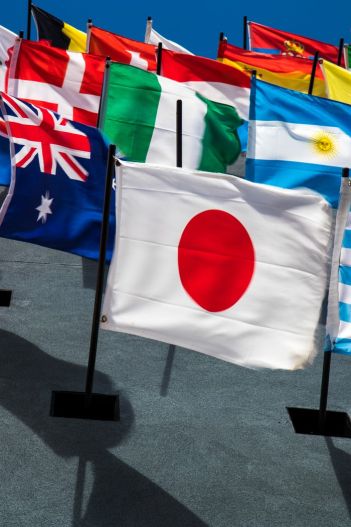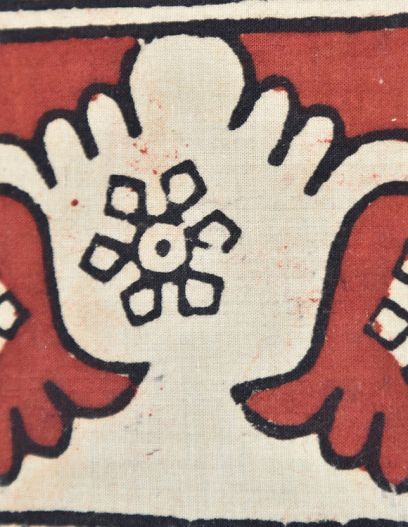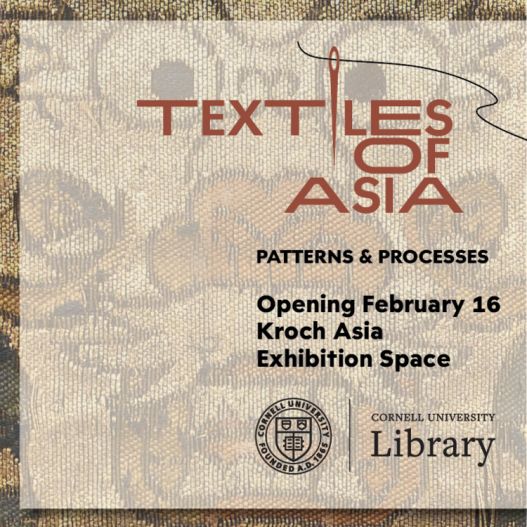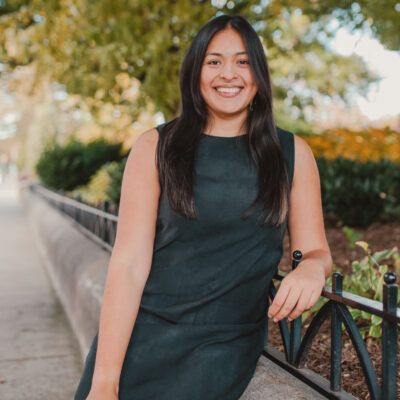South Asia Program
Russia Turns to China’s Yuan in Effort to Ditch the Dollar

Eswar Prasad, SAP/Einaudi
Eswar Prasad, professor of economics and international trade policy, says that it will take a while to build the financial infrastructure to sidestep the dollar-based financial system that has been built up over decades.
Additional Information
Global Hubs Town Hall

March 13, 2023
11:30 am
G10 Biotech
Faculty and staff are invited to join for an overview and open discussion of the Global Hubs initiative.
Vice Provost Wendy Wolford will explain the purpose of the Global Hubs, and faculty leads for several of the Hubs locations will discuss their experiences with institutional partners and ways for faculty and staff to be involved.
Please bring your questions about the Hubs and join us in person on March 13 at 11:30 a.m. in G10 Biotech.
Moderator:
Wendy Wolford, Vice Provost for International Affairs
Faculty Presenters:
Gustavo Flores-Macias, faculty lead for Tecnológico de Monterrey, MexicoNate Foster, faculty lead for University of Edinburgh, United KingdomYing Hua, director of Cornell China Center, BeijingLee Humphreys, faculty lead for DenmarkTom Pepinsky, faculty lead for National University of Singapore, SingaporeMark Milstein, representative for the Faculty Senate CAPP on the faculty advisory committeeRachel Beatty Riedl, director of the Mario Einaudi Center for International StudiesKen Roberts, faculty lead for Universidad San Francisco de Quito, Ecuador
Additional Information
Program
Einaudi Center for International Studies
East Asia Program
Southeast Asia Program
South Asia Program
Reppy Institute for Peace and Conflict Studies
Latin American and Caribbean Studies
Institute for African Development
Institute for European Studies
War in Ukraine Deepens Divide among Major Economies at G20 Gathering

Eswar Prasad, SAP
“There’s clearly been a splintering of the G20...The fact that the U.S. clearly has so much power to take action against a geopolitical rival is a significant concern,” says Eswar Prasad, professor of economics and international trade policy.
Additional Information
Global PhD Research Awards

Open now! Apply by March 10
PhD students: Conduct your international field research with a $10,000 award. Read about Vincent Mauro’s 2021–22 award and find out how to apply.
Additional Information
Threads: Sustaining India's Textile Traditions - A new film by Katherine Sender

April 11, 2023
4:00 pm
Mann Library, Room 102
As part of Mann Library’s Sustainable Fashion programming for the month of April, the Cornell and Ithaca area public are warmly invited to a screening of a documentary film co-directed by professor of communication and feminist, gender & sexuality studies Katherine Sender. Threads: Sustaining India’s Textile Tradition follows the stories of fashion designers and fabric artisans as they transform traditional textile practices for contemporary fashion markets. The film features interviews with designers in Delhi and Jaipur; hand weavers in Chanderi, 350 miles south of New Delhi; bandhani tie-dyers in Bhuj, in India’s north west; and block printers near Jaipur in Rajasthan. As conversations with designers and artisans featured in the documentary illustrate, their ongoing partnerships not only present promising implications for environmental stewardship and workers’ lives, they are also reinvigorating traditional textile techniques and the communities who produce them.
A Q & A discussion with professor Sender will follow the screening.
Mann Library is pleased to present "Threads" as part of the "Threads of History: Textiles Across Cornell" programming occurring on the Cornell campus in. 2022/2023. Other events taking place at Mann Library as part of this programming include:
"Threading the Needle: Weaving Tradition Into Contemporary Textile Art," an exhibit in the Mann Library Gallery, March 23 - August 2023. (Opening reception: Thursday, March 23)"Sustaining Style: Towards Responsible Fashion," exhibit in the Mann Lobby, March 23 - September 15, 2023. Clothing Exchange in collaboration with Cornell Thrift (Mann Lobby, Thurs, April 13). Sew Creative: A Hands-on Workshop on the Techniques of Stitching (Mann Room 102, Friday, April 14; 12:00 - 2:00 p.m.; registration required).19th Century Woven Coverlets: The Finger Lakes Story (Mann Room 160, Thursday, May 4, 4:00 p.m.)Fiber Arts Stressbuster - displays & activities with natural dyes & stamps, Friday, May 12, 11:00 a.m.- 2:00 p.m. Check mann.library.cornell.edu for more details and updates on additional programming.
Additional Information
Program
Einaudi Center for International Studies
South Asia Program
Development Economics Workshop: Digvijay Negi

February 22, 2023
1:30 pm
Mann Library, 102
Digvijay Negi, Cornell University
Deadweight Losses or Gains from In-kind Transfers? Experimental Evidence from India
Abstract:
Are in-kind transfers associated with deadweight losses? To answer this, we conducted an incentivized field experiment in India, which offered low-income households the choice between a free quantity of rice and varying amounts of cash to elicit their willingness to pay for rice. Contrary to expectation, we find evidence of deadweight gain on average, though with a striking contrast between a deadweight loss among respondents from female-headed households and a deadweight gain among respondents from male-headed households. Our results highlight the role of gender differences in bargaining power in shaping the choice between cash or rice.
Additional Information
Program
South Asia Program
Textiles of Asia: Patterns & Processes

October 31, 2023
12:00 am
Carl A. Kroch Library, Kroch Asia Exhibition Space
As part of the Threads of History exhibition series, Kroch Asia presents Textiles of Asia: Patterns & Processes.
There is a rich history of textiles in Asia. From the animal-skin clothing of the Ainu to the intricate weaving of silk, Asian cultures have showcased their artistry through their textiles for centuries. Textiles of Asia: Patterns and Processes covers a multitude of fabrics, designs, and production techniques created by indigenous cultures and those imported through trade and travel.
Exhbit runs February 16th - October 31st, 2023 in the Kroch Asia Exhibition Space.
Contact AsiaRef@cornell.edu for questions or more information.
Additional Information
Program
East Asia Program
Southeast Asia Program
South Asia Program
U.S. Will Probably Take Significant Retaliatory Measures against China, Says Professor

Eswar Prasad, SAP
Eswar Prasad, professor of economics and international trade policy, joins CNBC to discuss U.S.-China economic and geopolitical relations.
Additional Information
Einaudi Graduate Fellow Studies Women’s Political Participation

Angie Torres-Beltran
Einaudi graduate fellow Angie Torres-Beltran studies how women’s political participation is influenced by gender-based violence and interactions with state institutions under the guidance of Sabrina Karim and Gustavo Flores-Macías.
Additional Information
A Step on a Longer Journey

Afghan Scholar Sharif Hozoori
Hozoori is an IIE Scholar Rescue Fund fellow and visiting scholar in the South Asia Program. Read about his journey to Cornell and work on campus.
